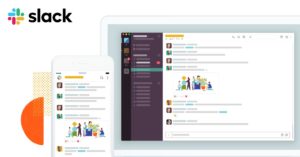Kubernetes Storage with Saad Ali
Podcast: Play in new window | Download
Subscribe: RSS


Containers are made to fail gracefully. When your container shuts down due to a hardware or software failure, your distributed application should be able to tolerate that failure. One simple way to be able to tolerate such a failure is to make all of your application logic “stateless.”
If your application does not maintain state, then shutting it down in the middle of a computation is not a problem–you can just restart the application, restart your computation, and get the same result.
But applications need to maintain state. We need to use databases and in-memory systems to manage long-lived user sessions and other interactions. A database is not just an on-disk abstraction–a database requires an application server to be accepting network traffic. We can run those database applications within containers.
There is a fundamental tension between stateful applications and the idea that containers are meant to tolerate failure gracefully.
Saad Ali is an engineer at Google, and he returns to the show to discuss Kubernetes storage and state management. He gave a keynote at KubeCon EU, which I spoke to him about.
ANNOUNCEMENTS
- Upcoming conferences I’m attending: Datadog Dash July 16th and 17th in NYC, Open Core Summit September 19th and 20th in San Francisco
- We are hiring two interns for software engineering and business development! If you are interested in either position, send an email with your resume to jeff@softwareengineeringdaily.com with “Internship” in the subject line.
- FindCollabs is the company I am building, we launched several new features recently. If you have a cool project you are working on, I would love to see it. I check out every project that gets posted to FindCollabs, and I’ve been interviewing people from some of these projects on the FindCollabs podcast
New Software Daily app for iOS. You can become a paid subscriber for ad free episodes at softwareengineeringdaily.com/subscribe
Transcript
Transcript provided by We Edit Podcasts. Software Engineering Daily listeners can go to weeditpodcasts.com/sed to get 20% off the first two months of audio editing and transcription services. Thanks to We Edit Podcasts for partnering with SE Daily. Please click here to view this show’s transcript.














